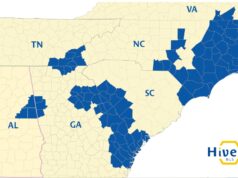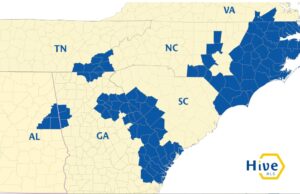Norton Bill to Give D.C. the Same Power as States to Grant Clemency – Home-Rule Power on the Way to Statehood
WASHINGTON, D.C. – January 5, 2015 – (RealEstateRama) — Congresswoman Eleanor Holmes Norton (D-DC) today introduced a bill that would give the District of Columbia exclusive authority, like states, to grant clemency for criminal convictions under its laws. While D.C. law appears to give the mayor authority to grant clemency (D.C. Code 1–301.76), the U.S. Department of Justice (DOJ) has opined that the mayor’s clemency authority, if any, is very narrow, and that the President of the United States has authority to grant clemency in all D.C. criminal cases and exclusive authority for D.C. felonies. Under current practice, clemency petitions for D.C. convictions, like federal convictions, are submitted to DOJ for the President’s consideration. In Norton’s bill, clemency includes pardons, reprieves, or commutations of sentence.
“It is not necessary to take a position on whether DOJ’s interpretation of the mayor’s clemency authority is correct,” Norton said. “All that needs to be said is that the District, like states, should have full control of its local criminal justice system, the most basic responsibility of local government, including clemency, following a conviction in local courts under local law. A conviction for which clemency would be granted is local D.C. law, enacted by the D.C. Council, not federal law. The only federal links remaining to the District’s local law are prosecutions by the U.S. Attorney for the District of Columbia in Superior Court, an Article I court, whose judges are confirmed by the Senate after the President nominates a candidate based on recommendations from a local commission. Yet, for local crimes, these appointees enforce only local law. Presidential clemency authority over local residents convicted only of local crimes is a holdover from before the District was granted home rule. This bill, like my bill to give the District the authority to prosecute all local crimes, is an important home-rule advancement. It is clear that the District Clause of the U.S. Constitution gives Congress authority to vest exclusive clemency authority in the D.C. government.”
Norton’s bill vests all clemency authority not currently reserved to the Mayor under D.C. Code 1–301.76 to the District government and gives D.C. the discretion to establish its own clemency system. Like states, the city could give clemency authority to the chief executive (in this case, the mayor), a commission or some other entity.
Under federal law, the U.S. Attorney for the District of Columbia prosecutes all D.C. Code felonies and the Federal Bureau of Prisons houses all D.C. Code felons.
Norton’s full introductory statement is below.
Statement of Congresswoman Eleanor Holmes Norton on the Introduction of the District of Columbia Home Rule Clemency Act of 2016
January 5, 2016
Today, I introduce the District of Columbia Home Rule Clemency Act of 2016, a bill that would give the District of Columbia exclusive authority, like states, to grant clemency to offenders prosecuted under its local laws.
While D.C. law appears to give the mayor authority to grant clemency (D.C. Code 1–301.76), it is currently the opinion of the Department of Justice that the president, and not the mayor, has the authority to issue clemency for most local offenses prosecuted under D.C. law, particularly felonies prosecuted by the U.S. Attorney in the D.C. Superior Court. Under current practice, clemency petitions for D.C. convictions, like federal convictions, are submitted to the DOJ for the president’s consideration.
Whether or not the DOJ’s view is correct, my bill would remove all doubt that the District, and not the president, has the authority to issue executive clemency. The District, like states, should have full control of its local criminal justice system, the most basic responsibility of local government. Since the D.C. Council has the authority to enact local laws, District officials are in the best position to grant clemency for local law convictions. My bill would provide all clemency authority not currently reserved to the Mayor under D.C. Code 1–301.76 to the District government and would give D.C. the discretion to establish its own clemency system.
This bill is an important step in establishing further autonomy for the District in its own local affairs. I urge my colleagues to support this measure.

















